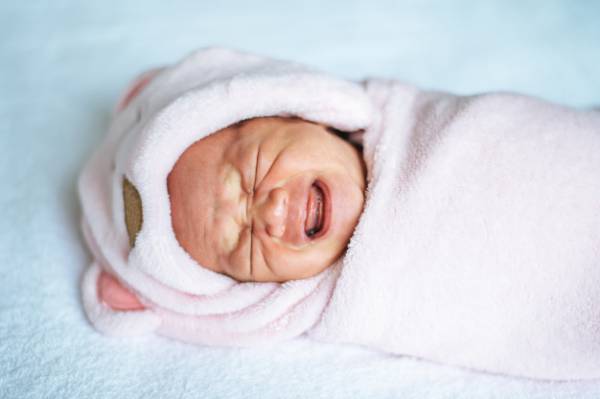Dangers of prolonged crying for the baby
Is prolonged crying harmful to the baby?
Experience shows that babies cry when they are alone and away from their parents. The fact is that when they call, the hormones adrenaline and cortisol are released in the body and brain of babies, and if this situation continues, their nervous system is shaken.
Do babies who cry all day and even at night have nervous consequences?
Complications of prolonged crying:
Chemical and hormonal imbalances in the brain
Research shows that infants who usually are away from their parents have abnormally high-stress hormone cortisol levels and low growth hormone levels. This imbalance between the body’s hormones disrupts the growth of brain nerve tissue and suppresses growth. It slows and shakes the immune system.
Researchers have found that severe stress early in life can alter the brain’s neurotransmitter system and cause structural and functional changes in the brain’s areas.
According to research, children affected by persistent crying are ten times more likely than other children to have communication disorders and antisocial behaviors. The researchers found that these findings may be due to insufficient parental attention to infants.

Researchers believe that chronic and excessive stress stimulates the brainstem (the part of the brain that controls the production of the hormone adrenaline) in infants and does not respond to their physical and emotional needs. Such a child will become aggressive and violent in adulthood because a lot of adrenaline is released in the brainstem.
Experts believe that the stress hormone cortisol (produced by intense crying and other stressful events in the brain) causes the loss of neural connections in essential parts of the baby’s brain and the lack of stimulation of attachment and emotions. These areas’ details do not develop in infancy, and violent behaviors are more common in children in adulthood. As a result, parental irresponsibility in responding to the child’s emotional needs will have negative personality consequences.
Irregularities in the intellectual, emotional, and social development of the child
Dr. Michael Lewis, a child development specialist, believes that a child’s intellectual development’s most important effect is responding to the mother’s emotional needs. Researchers have found that children who are not unaware of crying have good mental and social skills, and prolonged crying weakens infants. Children who experience prolonged crying have more difficulty controlling their emotions and develop an independent personality later than other children.
Harmful physiological changes
Research on animals and humans has shown that infants’ separation from their parents can cause abnormal and unstable heartbeats. Other consequences of separating infants from their parents include increased blood pressure in the brain, increased stress hormones, obstruction of blood flow to the brain, and decreased oxygen supply, resulting in constant attention to infants in terms of nerves, brain, and heart.
Effects of prolonged crying on vocal cords
The vocal folds are located in the v-shaped structures of the larynx and act as voice control. Natural crying does not damage the baby’s vocal folds, but excessive crying and screaming can damage the vocal folds and cause knots. A child with a knot has a dumb voice. But hoarseness does not always indicate a nodule, and long-term crying can temporarily destroy the protective mucosa of the vocal folds and cause hoarseness in the short term. If the baby continues to cry, his vocal folds will be damaged in the long run.

colic:
If a child under three months of age has a sudden cry that lasts up to 3 hours 3 days a week, they may develop colic. Colic is transient and improves over time. Children with a urinary tract infection, earache, or cold may also have colic-like cries.
Symptoms of colic:
- It gets worse after breastfeeding.
- At a specific time and often in the afternoon, the baby begins to cry.
- As the pain begins, the baby blushes, fold his legs in the abdomen, and bends his back.
- Colic is reduced for four months.
Reasons for colic:
The child is sensitive to sound and light due to the immature nervous system and tries to avoid environmental pressures by crying. The baby also suffers from colic due to nutritional problems such as sensitivity to milk protein.
Adjuvant treatments for colic:
- Baby massage
- Soothing sounds
- Silence
- Movement and oscillation
- taking out
- Changing body position
- Take a shower
- Treatment of bloating
What should we do when a Prolonged Crying?
- Put your baby in a thin blanket and hug him; hugging your baby plays a vital role in calming him.
- After breastfeeding, place your head on her shoulder and rub her back to burp.
- When sleeping, place your baby in a crib near you and hug him to feel your presence next to him.
- Play soothing music for him.
- Hearing the mother’s heartbeat helps the baby feel relaxed.
- Feed your baby and avoid overeating before your baby is hungry.
- Be careful when using food for your baby to avoid any allergies.
- Avoid caffeinated or carbonated foods to avoid upsetting your baby.
- Consult your doctor to determine the cause of your baby crying.
- Your baby should sleep more than 3 hours a day, so make sure your baby sleeps well and avoid making too much noise.
Intensity, shape, and duration of crying:
The baby cries more in the first three months of life, especially from birth to 6 weeks, after which the crying time is almost halved. 40% of babies cry in the evening. The average crying time of children varies from 2 hours a day in the first three months of life to one hour a day in 4 to 12 months.
In general, different reasons for a baby to crying include:
- Hunger
- Fatigue
- The ambient temperature is inappropriate.
- Improper diapers
- Gastric reflux and similar problems
- Vertigo
- Fever or other illnesses
If you can not lower your child’s fever, take him to the hospital immediately.
If you can not stop the baby from crying, it is essential to avoid violence because it makes the baby feel insecure, and the crying intensifies.
Also Read:
Effective drugs in reducing toothache
Properties and benefits of papaya for skin, hair, and health


